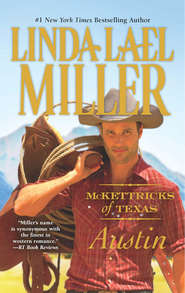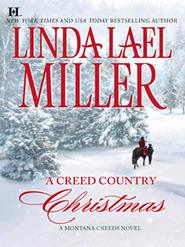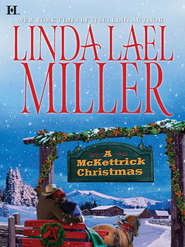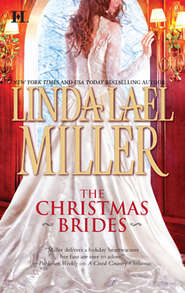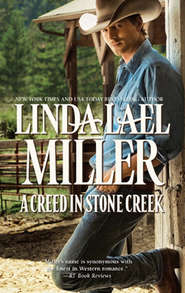По всем вопросам обращайтесь на: info@litportal.ru
(©) 2003-2024.
✖
The Marriage Pact
Автор
Год написания книги
2019
Настройки чтения
Размер шрифта
Высота строк
Поля
Tripp shifted his attention back to coming home. He’d been there intermittently, over the years, returning for the odd Thanksgiving or Christmas holiday, the usual funerals and weddings—one of them particularly memorable—and a class reunion or two at the high school. It had been a long time, though, since he’d been a resident.
In the off-season, Mustang Creek was a sleepy little burg nestled in a wide valley, with mountains towering on all sides, but in the summer, when folks came through in campers and minivans on family vacations, taking in the Grand Tetons as they made their way either to or from Yellowstone, things livened up considerably. The second big season, of course, was winter, when visitors from all over the world came to ski, enjoy some of the most magnificent scenery to be found anywhere and, to the irritated relief of the locals, spend plenty of money.
As it happened, he and Ridley were arriving during the brief lull between the sizable influxes of outsiders, that being September, October and part of November, and Tripp was looking forward to living quietly on his stepdad’s ranch for a while, doing real work of the hard physical variety. After several years spent running his small but profitable charter-jet service out of Seattle—ironically, he’d put in most of his hours behind a desk instead of in the cockpit, where he would have preferred to be—Tripp hankered for the sweat-soaked, sore-muscle satisfaction that came with putting in a long day on the range.
He’d made some heavy-duty changes in his life, most of them recent, selling his company and all six jets, leasing out his penthouse condo with its breathtaking view of Elliott Bay and points beyond, including the snow-covered Olympic mountain range.
He didn’t miss the city traffic, the honking horns and other noise, or jostling through crowds everywhere he went.
Oh, yeah. Tripp Galloway was ready for a little un-urban renewal.
More than ready.
There were some things in his past he needed to come to terms with, now that he’d shifted gears and left his fast-track life, with its pie-charts and spreadsheets, three-piece suits and meetings, not to mention the constant barrage of texts, emails and telephone calls and the decisions that had to be made
Now. Or better yet, yesterday.
Out here, in the open country, he wouldn’t be able to dodge the stuff that prodded at the underside of his conscious mind 24/7. Losing his mom when he was just sixteen, for instance. Sitting by helplessly while his best friend died, thousands of miles from home. And then there was his short-term marriage, over for some eight years now—he and Danielle were better off without each other, no doubt about it, but the divorce had hurt, and hurt badly, just the same.
He’d dated a lot of women since then, but he’d always been careful not to get too involved. Once the lady in question started bringing up topics like kids and houses—and leaving bridal magazines around, with pages showing spectacular wedding gowns or knock-out engagement rings—he was out of there, and quick. It wasn’t that Tripp didn’t want a home and family. He did.
He’d been led to believe that Danielle did, too.
Wrong.
When they’d finally called it quits over that disagreement and numerous others, it wasn’t Danielle’s departure that grieved him for months, even years, afterward, it was the death of the dream. The failure.
Tripp banished his dejection—no sense getting sucked into the past if he could avoid it—just as he and the dog rolled on, into the heart of town. By then, Ridley had pulled his head back inside the truck and was checking out their surroundings, tongue lolling.
Mustang Creek proper was something to see, all right. The main street was outfitted to look like an Old West town, with wooden facades on all the buildings, board sidewalks and hitching posts and even horse troughs in front of a few of the businesses. While a number of the local establishments had saloonlike names—the Rusty Bucket, the Diamond Spur and so on—there was only one genuine bar among the lot of them, the Moose Jaw Tavern. The Bucket housed an insurance agency, and the Spur was a dentist’s office.
Tripp supposed the whole setup was pretty tacky, but the fact was, he sort of liked it. Sometimes, at odd moments, it gave him the uncharacteristically fanciful feeling that he’d slipped through a time warp and ended up in the 1800s, where life was simpler, if less convenient.
Once they’d left the main street behind, the town began to look a little more modern, if the 1950s could be called modern. Here, there were tidy shingled houses with painted porches and picket-fenced yards bursting with the last and heartiest flowers of summer. The sidewalks were buckled in places, mostly by tree roots, and dogs wandered loose, clean and well fed, safe because they belonged, because everybody knew them by name and finding their way home was easy.
Ridley made a whining sound, probably born of envy, as they passed yet another meandering canine.
Tripp chuckled and reached over to pat the Lab’s glossy ruff. “Easy, now,” he said. “Once we get to the ranch, you’ll have more freedom than you’ll know what to do with.”
Ridley rested his muzzle on the dashboard, rolled his eyes balefully in Tripp’s direction and sighed heavily, as if to say, Promises, promises.
And then, just like that, there it was, the redbrick church, as unchanged as the rest of the town. Looking at the place, remembering how he’d crashed Hadleigh Stevens’s wedding, called a halt to the proceedings and then carried her out of there like a sack of grain made his stomach twitch.
It wasn’t that Tripp regretted what he’d done; time had proven him right. That pecker-head she’d been about to marry, Oakley Smyth, was on his third divorce at last report, due to a persistent gambling habit and an aversion to monogamy. Moreover, his trust fund had seized up like a tractor left out in the weather to rust, courtesy of a clause in his parents’ wills that allowed for any adjustments the executrix might deem advisable, pinching the cash flow from a torrent to a trickle.
These days, evidently, it sucked to be Oakley.
And that was fine with Tripp. What wasn’t fine, then or now, was seeing Hadleigh hurt so badly, knowing he’d personally broken her heart, however good his intentions might have been. Knowing she’d never found what she really wanted, what she’d wanted from the time she was a little girl: a home and family, the traditional kind comprising a husband, a wife, 2.5 children and some pets.
A light, dust-settling drizzle began just then, reflecting his mood—the weather could change quickly in Wyoming—as they were passing the town limits, only ten miles or so from the ranch, and Tripp eased his foot down on the gas pedal, eager to get there.
As the rig picked up speed, Ridley let it be known that he’d appreciate another opportunity to stick his head out into the wind, rain or no rain.
* * *
RAIN.
Well, Hadleigh Stevens thought philosophically, the farmers and ranchers would certainly appreciate it, even if she didn’t.
Such weather made some people feel downright cozy; they’d brew some tea and light a cheery blaze in the fireplace and swap out their shoes for comfortable slippers. But it always saddened Hadleigh a little when the sky clouded over and the storm began, be it drizzle or downpour.
It had been raining that long-ago afternoon when her grandmother had shown up at school, her face creased with grief, to collect Hadleigh, saying not a word. They’d gone on, in Gram’s old station wagon, to pick up Will. He was waiting out in front of the junior high building, pale and seemingly heedless of the downpour. Being seven years older than Hadleigh, he’d known what she hadn’t—that both their parents had died in a car crash just hours before, outside Laramie.
It rained the day of their mom and dad’s joint funeral and again a few years later, when Hadleigh and her grandmother got word that Will had died as a result of wounds received during a roadside bombing in Afghanistan.
And when Gram had passed away, after a long illness, the skies had been gray and umbrellas had sprouted everywhere, like colorful mushrooms.
Today, Hadleigh had tried to shake off the mood by her usual method—keeping busy.
She’d closed Patches, the quilting shop she’d inherited from her grandmother, at noon; her two closest friends were coming over that evening, on serious business. The modest house was neat and tidy. She’d vacuumed and dusted and polished for an hour after lunch, but there was still plenty to do, like have a shower, do something with her hair and bake a cake for dessert.
She was taking one last narrow-eyed look around the living room, making sure everything was as it should be, when she heard the familiar whimper outside on the porch, followed by persistent scratching at the screen door.
Muggles was back.
Hadleigh hurried to open up, and her heart went out to the soggy golden retriever sitting forlornly on her welcome mat, brown eyes luminous and hopeful and apologetically miserable, all at once.
“Hey, Mugs,” Hadleigh said with a welcoming smile. She unlatched the screen door and stepped back to admit the neighbor’s dog. “What’s up?”
Muggles crossed the threshold slowly, stood dripping on the colorful hooked rug in the small foyer, and gazed up at Hadleigh again, bereft.
“It’s okay,” Hadleigh assured her visitor, bending to pat the critter’s head. “You just sit tight, and I’ll get you a nice, fluffy towel. Then you can have something to eat and curl up in front of the fire.”
Obediently, Muggles dropped onto her haunches, rainwater puddling all around her.
Hadleigh rushed into the downstairs bathroom—Gram had always called it “the powder room”—and snatched a blue towel off the rack between the sink and the toilet.
After returning to the foyer, she crouched to bundle Muggles in the towel, draping it around those shivering shoulders, drying the animal’s grubby coat as gently as she could.
“Now for some food,” she said when Muggles was as clean as could be expected, without an actual tub bath or a thorough hosing-down. “Follow me.”
Muggles wagged her plumy tail once and rose from the rug.
The poor thing smelled like—well, a wet dog—and clumps of mud still clung to her fur, but it didn’t occur to Hadleigh to fret about her clean carpets and just-washed floors.
Reaching the kitchen, which was pleasantly outdated like the rest of the house, Hadleigh made her way to the pantry and found the plastic bowls she’d bought especially for Muggles, who’d been a frequent visitor over the three months since her doting mistress, Eula Rollins, had passed away. Eula’s husband, Earl, was elderly, grieving the loss of the wife he’d adored, and in frail health besides. While Earl certainly wasn’t an unkind person, he understandably tended to forget certain things—like letting the dog back inside after she’d gone out.
That was why Hadleigh kept a fifty-pound sack of kibble on the screened-in back porch and a stash of old blankets in the hall closet, for those times when Muggles needed water, a meal and a place to crash.






